When it comes to tracking health and fitness, fitness trackers and smartwatches have been around for years. But more recently, the best smart rings have started to gain an increasing amount of traction.
Once an extremely niche product used mainly by celebrities and fitness tech enthusiasts, brands such as Oura and Ultrahuman have managed to take these devices mainstream. And with the likes of Samsung and Amazfit also releasing smart rings in 2024, it looks as though 2025 will see smart rings become more popular than ever.
Technology companies look set to invest further in this arena, with rumours that Apple is also working on a smart ring. And often, where Apple leads, everyone else follows. But while we're at the relatively early stages of smart ring innovations, they still have plenty to offer. If you want to track your health and fitness with a stylish and unobtrusive piece of tech – a smart ring may be exactly what you're looking for.
Best smart rings of 2025 at a glance
Smart rings are still a very new technology. As such, there are currently only a handful of rings that are worth your time and money. Whether you want to track your activity, your sleep, your general health, or you just want an easy way to make contactless payments, there's a smart ring that will likely be the perfect fit.
To help you reach the best choice possible, we've selected some of our favourite smart rings and considered their strengths and weaknesses, including their weight, material, and affordability.
How we chose these products
We selected our pick of the best smart rings based on reliable and trusted brands, average user reviews, price, and suitability for each use case. We look carefully at the technical specifications of all products before we recommend them to ensure that they will meet buyers' needs without requiring modifications or costly additions to function as intended. With the best smart rings, our main focus is on build quality, tracking features, connectivity and app support, battery life and fit. Our writers also choose products based on hands-on experience where we own or have reviewed them ourselves. Retailers are selected based on price, availability and reputation as reliable and trusted sellers.
All prices are correct at the time of writing. Prices, stock and deals are subject to change without notice.
The best smart rings in 2025
Best overall smart ring
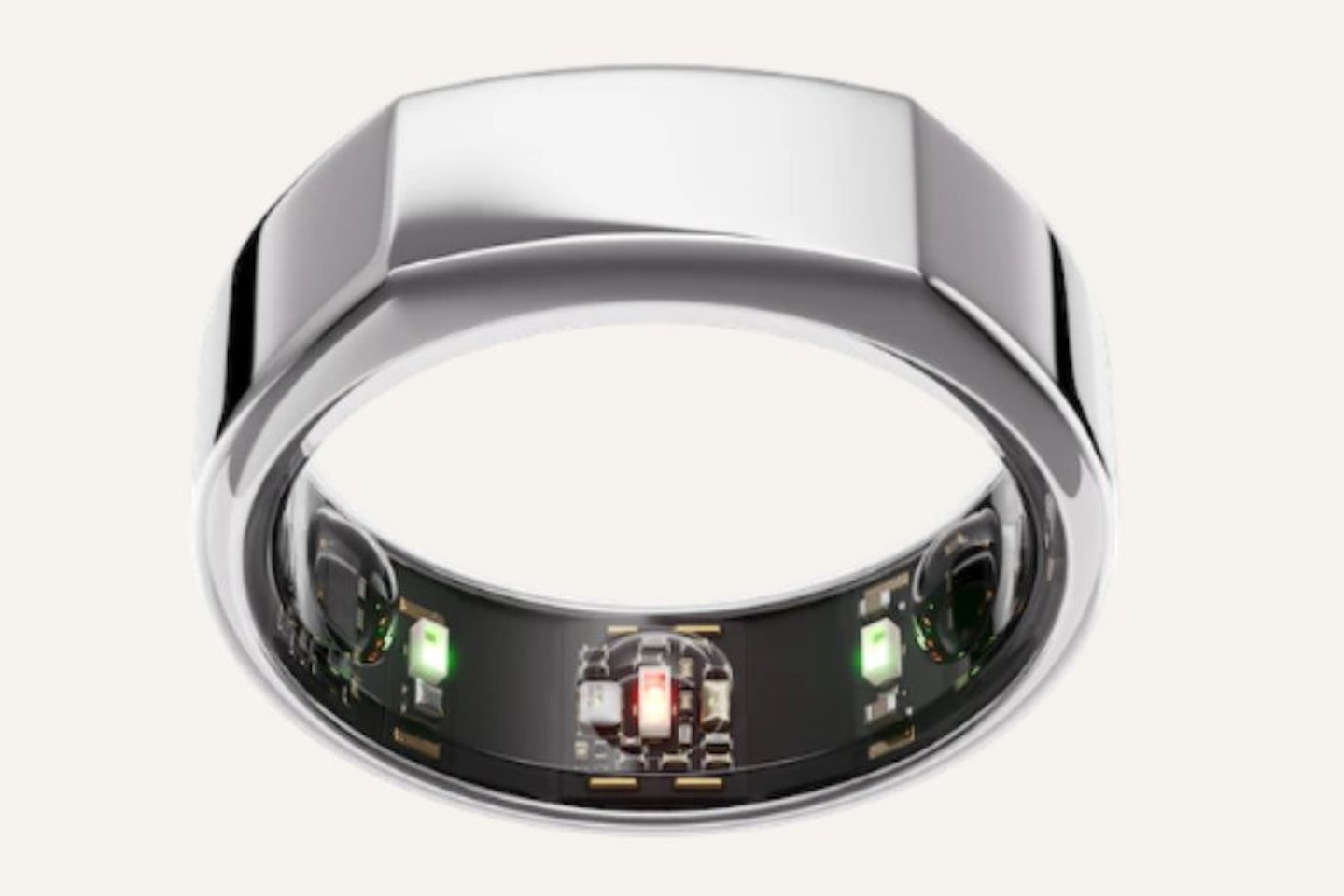
The Oura Ring is almost certainly the best-known smart ring brand, and with good reason – at the moment, we think that no other smart ring is quite as polished as this. With a wide range of stylish designs, including black, titanium, gold, and rose gold, it is a lovely ring to wear. Inside are three sensors to track heart rate, breathing, temperature, stress and blood oxygen metrics. As with most smart rings, we strongly recommend getting the Oura Ring Gen3 Sizing Kit first, as this will ensure the correct fit for both comfort and sensor positioning.
It can also give you information about your menstrual cycle, for tracking ovulation, or predicting when your next period will arrive. The Oura Ring also tracks over 30 different activities and can estimate your calorie burn based on how active you've been.
Oura collates that data to provide you with information about your overall wellbeing. It can, for example, give you an idea of how ready for exercise your body is, or whether you need to focus on recovery. It can even detect changes in your heart-rate variability, which can indicate that you're about to fall ill. Oura also regularly updates the Ring to provide new features.
Some users are disappointed to find that you need to pay a monthly £5.99 subscription to access all the data it collects, but as this is really for power-users we don't think this is too costly or unusual. Despite this, it is still an excellent device which could easily replace a fitness tracker for many users.
Pros
- Highly accurate sensors and data collection
- Lightweight and comfortable
- Water-resistant
Cons
- Slightly bulky compared to some others
- Full data can only be accessed via subscription
| Weight | 4 - 6g |
| Material | Titanium |
| Battery life | 7 days |
| Smartphone compatibility | Android, Apple |
Best smart ring for fitness tracking
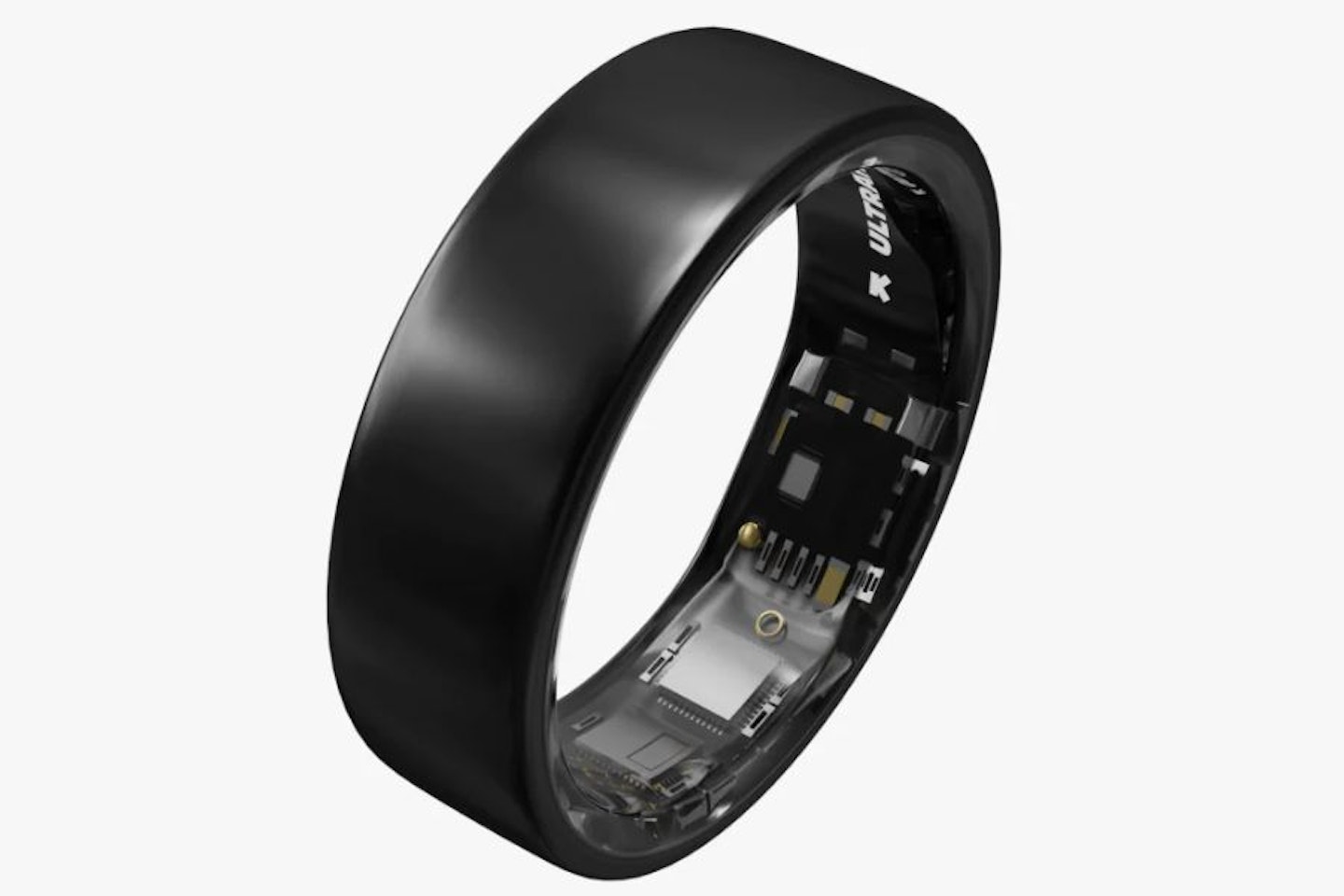
The Ultrahuman Air ring offers a wide range of health and fitness tracking tools, including heart rate, blood oxygen, and skin temperature. The ring can also track steps and exercise, as well as your sleep and menstrual cycle.
But for us, it's what the ring promises to do with all that data that makes it stand out. As well as estimating your cardiovascular fitness and calorie burn based on the metrics it tracks, the Ultrahuman Air ring sends you notifications throughout the day to help make the most of your changing energy levels. This includes, for example, a sunlight exposure window, to tell you when it is best to go outside, and a 'stimulant window' to tell you when it is best to stop drinking coffee to avoid ruining your sleep.
There's even data showing you how exposure to different stimulants – such as light, exercise or food – can affect your circadian rhythm, allowing you to identify ways to improve your lifestyle and build healthier habits. Unfortunately there are limited sizes available, but – unlike the Oura Ring – the Ultrahuman Air ring has no monthly subscription. Instead, you get a lifetime subscription for free when you buy the ring (RRP £329). It's a device that will appeal to anyone who loves data and insights into their health and fitness.
Pros
- Detailed tracking data
- Useful for keeping an eye on calories
- Very water-resistant
Cons
- Limited size options
| Weight | 2.4 to 3.6g |
| Material | Titanium with a Tungsten Carbide Carbon coating |
| Battery life | Up to 6 days |
| Smartphone compatibility | iPhones running iOS 14 or later, Android devices running Android 6 or later |
3.
Samsung Galaxy Ring
Best smart ring for women's health
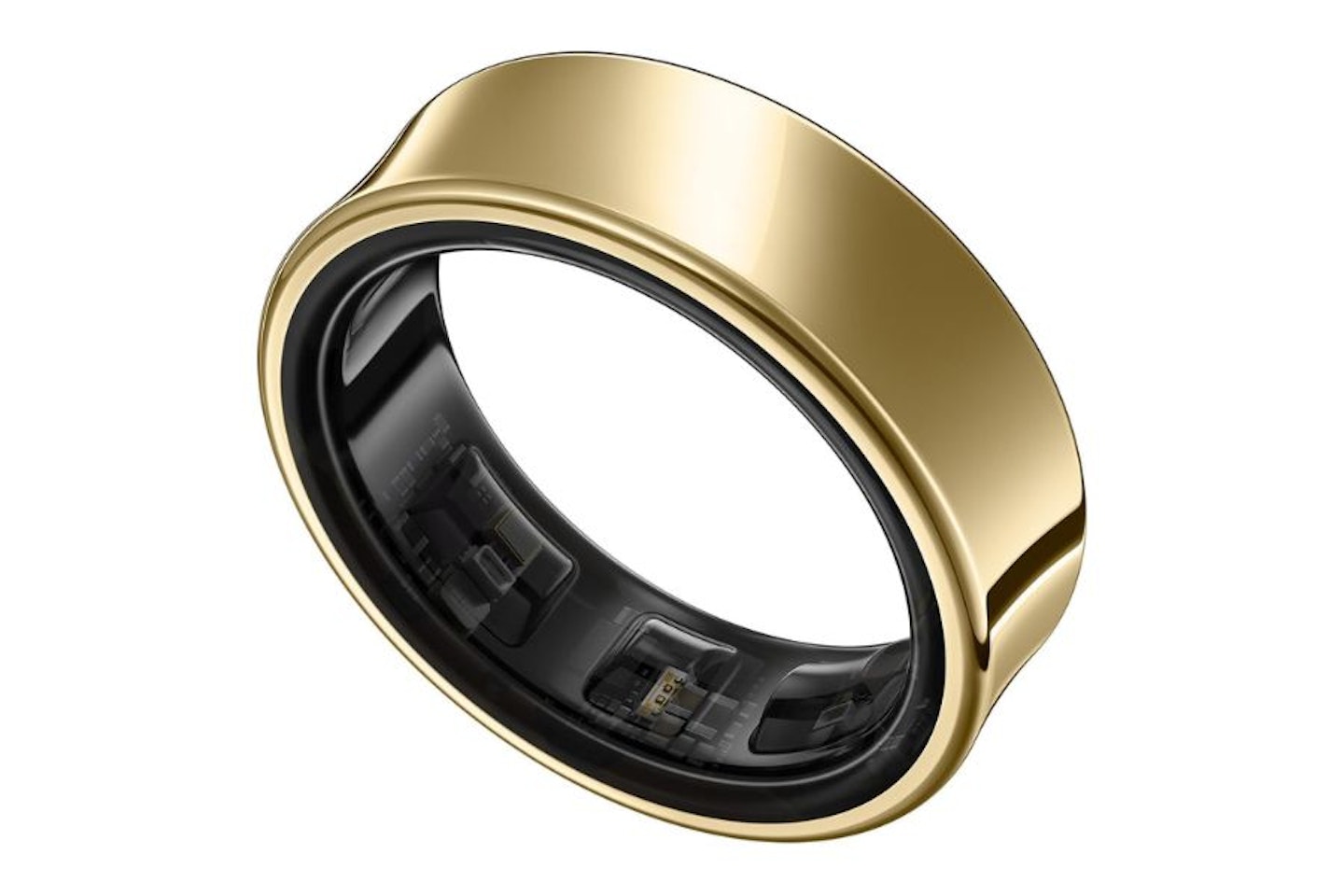 Samsung
SamsungArguably the most eye-catching ring on this list, the Galaxy Ring from Samsung is a simple yet elegant design finished in gold with a titanium frame underneath for superior strength. It tracks all the basics you'd expect form a smart ring – sleep quality, heart rate, steps, and more and it's even water resistant to 100 metres.
But what sets it apart is how it offers women’s health tracking with skin temperature as part of menstrual tracking. By logging this information, it allows the ring to start providing predictions for your menstrual cycle and fertile windows which we think will be highly valuable planning tool for any woman. Sleep coaching and Auto Workout Detection also helps you to fine-tune and monitor your activities. The app offers you an AI-powered Energy Score and wellness insights too.
We think the battery life is great, too, with between five and seven days between charges depending on the ring size. Some users do report that the position of the sensors in the ring are important for accuracy, so we recommend you buy the Samsung Galaxy Ring Sizing Kit to ensure the right fit. Lastly, as this is part of Samsung's family of Galaxy devices, if you have one you can pair the Galaxy Ring with a smartphone easily with the added benefit of using the Samsung Find app to locate a lost or missing ring.
Pros
- Stylish simple design
- Excellent female health features
- More features when used with other Samsung Galaxy devices
Cons
- Placement is important so invest in the Galaxy Ring Sizing Kit before you buy
| Weight | 2.3 grams |
| Material | Titanium frame |
| Battery | 5-7 days (depending on ring size) |
| Compatibility | Android phones running Android 11 or higher, Samsung Galaxy devices |
4.
RingConn Smart Ring
Best Oura Ring alternative
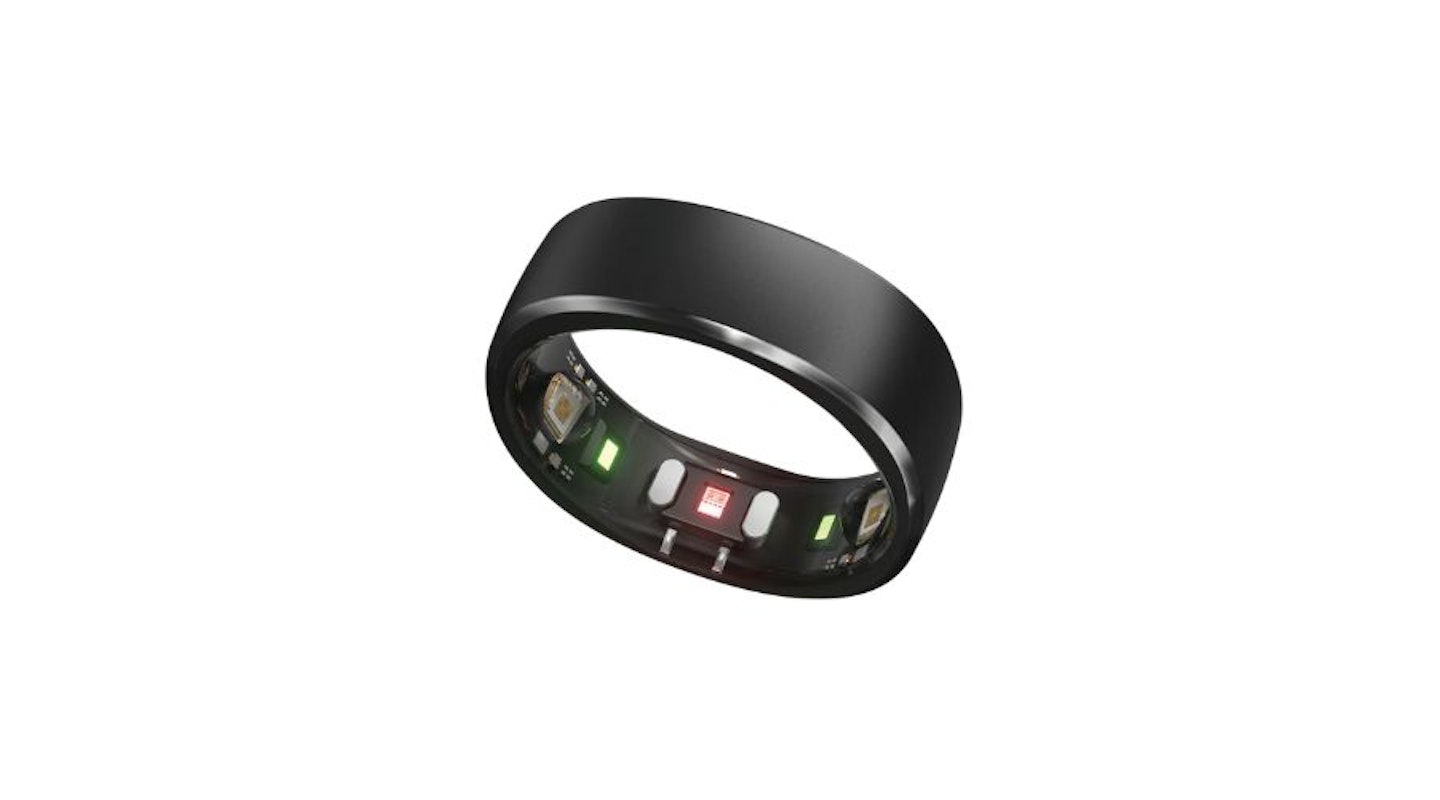 RingConn
RingConnIf you like the Oura Ring, but don't fancy paying for a monthly subscription, then we think that the RingConn smart ring might be a good alternative. It undercuts the price of the Oura Ring while still offering plenty of similar features.
The ring tracks sleep, heart rate, skin temperature, stress, blood oxygen, daily activity, and estimates calorie burn. The companion app provides plenty of data and includes a summary at the top of the screen that presents your vital statistics in an easy to digest rating format: Excellent, Good, or Improvable.
While there are some users who question the accuracy of some of its tracking, it does track activity in general, rather than specific workouts – and that's understandable when you look at the affordable price tag. Plus, the lack of subscription make this an affordable alternative to the Oura Ring.
Pros
- No subscription charges
- Long battery life
- Tracks lots of metrics
Cons
- Limited workout tracking and accuracy
| Weight | 3-5 grams |
| Material | Titanium with PVD coating |
| Battery | 7 days |
| Compatibility | Android and iOS compatible |
5.
McLEAR RingPay 2
Best smart ring for smart payments
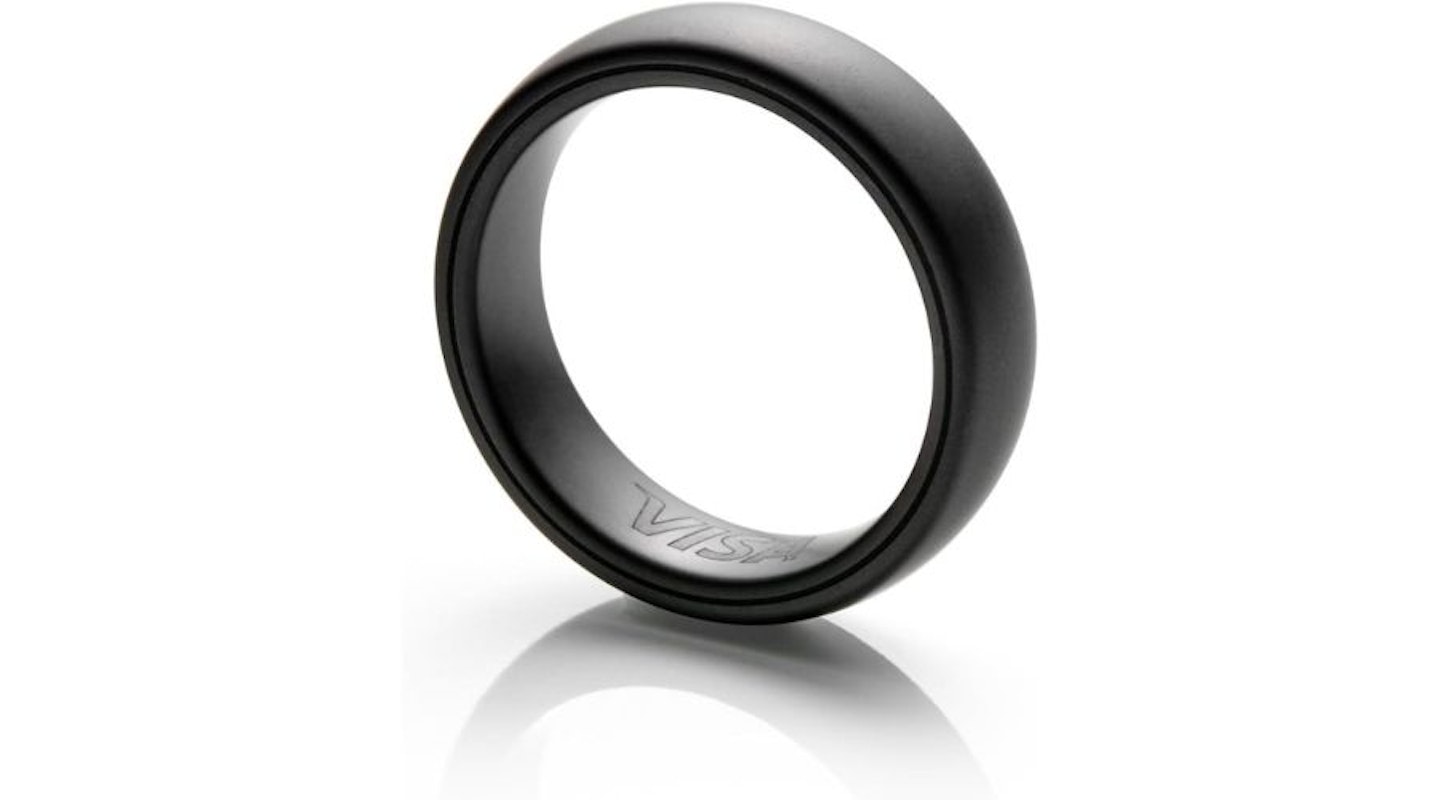 McLear
McLearUnlike the other rings on this list, the McLEAR Ringpay 2 doesn't track your health and fitness metrics. Instead, this ring focuses on being a convenient way to make contactless payments with little more than a wave of your hand.
It's thinner than many smart rings because it doesn't need as many sensors. The zirconia ceramic design is scratch resistant, hypoallergenic and waterproof. It's available in black, white, silver, or a limited edition 'stealth' matte black colour.
Unlike most contactless payment methods, which are linked to a bank account, we love that the McLEAR Ringpay ring works like a prepaid card which you top-up via its companion app. To make a payment, simply tap your hand on the payment terminal. You can transfer funds to the ring, set up auto top-ups when the balance falls below a certain level, and you can suspend payments via the app, if your ring goes missing.
And unlike other smart rings, you'll never need to charge this device. This is great in principle, but the ring and its associated app are only valid for three years from the time of activation. At this point it stops working. McLEAR says it "plans" to offer a "significant" discount on a new ring (RRP £89.99). But it's disappointing to not see this built-in to a more permanent device. That said, we do see this as a lifestyle purchase that will be less of a security and financial risk than a fully-fledged smart ring and fitness tracker.
Pros
- Brilliant value
- Sleek design
- Scratch-resistant
Cons
- No health tracking features
- Stops working after three years
| Weight | 5g |
| Material | Zirconia Ceramic |
| Battery life | N/A |
| Smartphone compatibility | Android, Apple |
How to choose the best smart ring for you
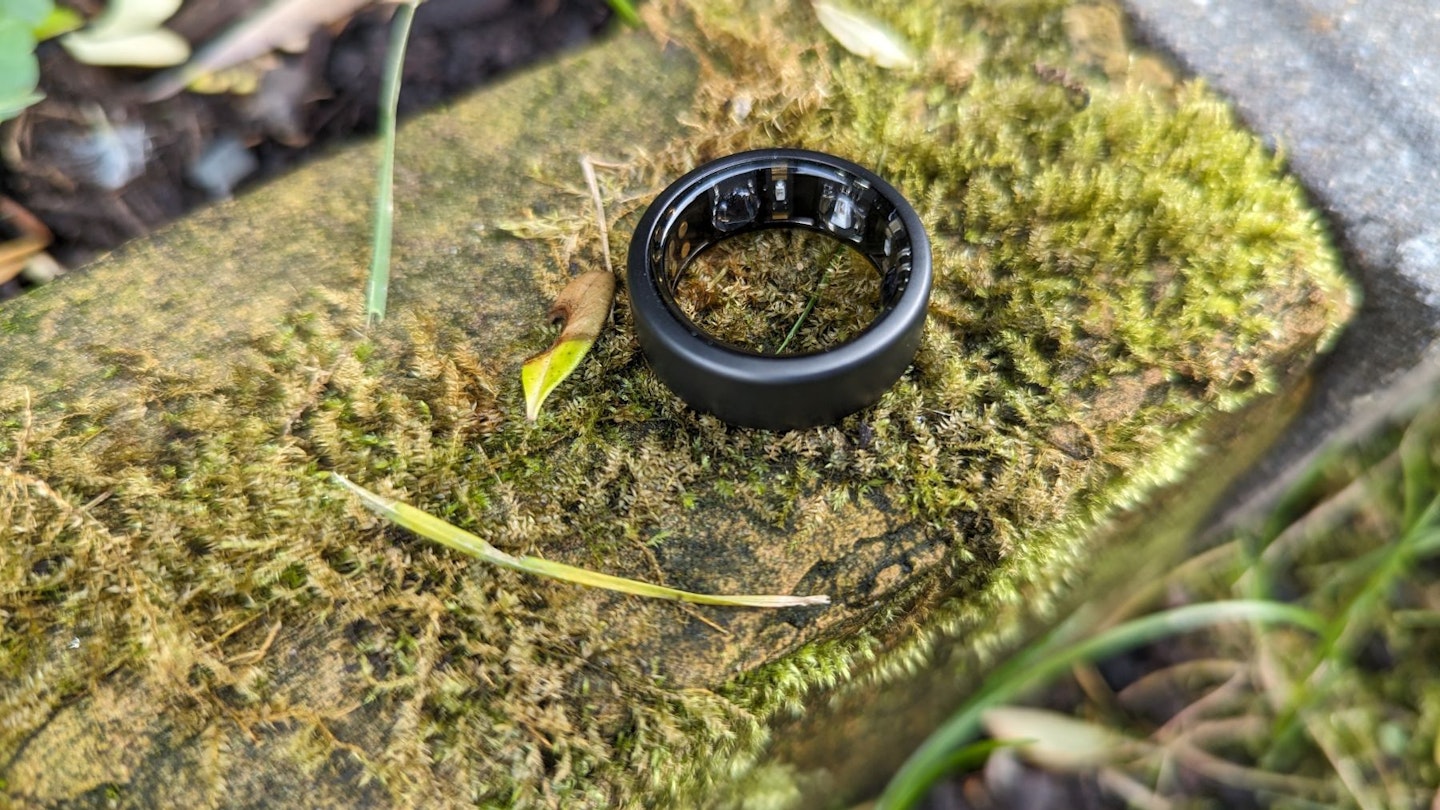
How to tell what size ring you need
Most smart ring manufacturers offer a sizing kit that you can use to check what size of ring is most suitable for you. The likes of Oura and Ultrahuman provide these for free.
Failing that, simply cut a thin strip of paper and wrap it around your ring finger. Where it first overlaps and meets, make a mark. Then, measure that from the start of the paper, and you have your finger diameter, which corresponds with a letter grading to reflect your size.
How to decide what smart ring is most suitable for you
If you still aren't sure what smart ring to go for, there are a few things to keep in mind to help you narrow it down.
Budget
Smart rings, as a relatively new technology, aren't quite as affordable as many budget fitness trackers, for example. It's important to decide how much you are willing to spend. A premium device such as the Oura Ring or Ultrahuman Air may set you back around £300, or perhaps more, depending on the style and finish you choose. A less well-known brand might be a little cheaper.
You'll also want to factor in subscription costs. The Oura ring charges a monthly subscription to give you access to all the data and insights it offers. You don't have to pay the subscription, but then you'll lose access to all but a few basic insights. See whether the ring you want will charge a monthly fee, and decide if you feel that's worth paying for.
Features
Also think about what features matter to you. Most smart rings offer broadly comparable functionality. But there are some that focus on performing specific functions, and don't include health and fitness tracking, for example. Work out which features matter and which ones don't.
App
The companion app is an essential component that is easy to overlook. Unlike a fitness tracker or smartwatch – which usually have a screen – you can't check your data or track anything without using the app. Some apps offer more insights than others, and each has its own way of presenting data. It's well worth taking some time to see which apps you like the look and feel of most, given you'll be using them regularly if you want to get the most from your ring.
FAQs
What is a smart ring?
Much like a fitness tracker, a smart ring can track a variety of health and fitness metrics, including heart rate, blood oxygen levels, sleep, and exercise. But whereas a fitness tracker is worn on the wrist, a smart ring goes on a finger. This makes them by far the most elegant and stylish tracking device currently available.
Their smaller size means a tiny battery, but no display does compensate for this. The lack of a screen means that you'll need to use a phone app to check any of the data that your smart ring has collected.
Why choose a smart ring?
Given that a smart ring does many of the same things as a fitness tracker, why pay more to get a smart ring?
Accuracy
Smart rings have very similar sensors to those found in fitness trackers and smartwatches. Crucially, though, smart rings may actually be more accurate than either of those wrist-worn devices. Smart rings sit closer to the large blood vessels found in the fingers, making it easier (in theory) to get accurate readings with their sensors. You'll have to make sure the ring you're wearing fits properly to make sure the sensors are in the right place.
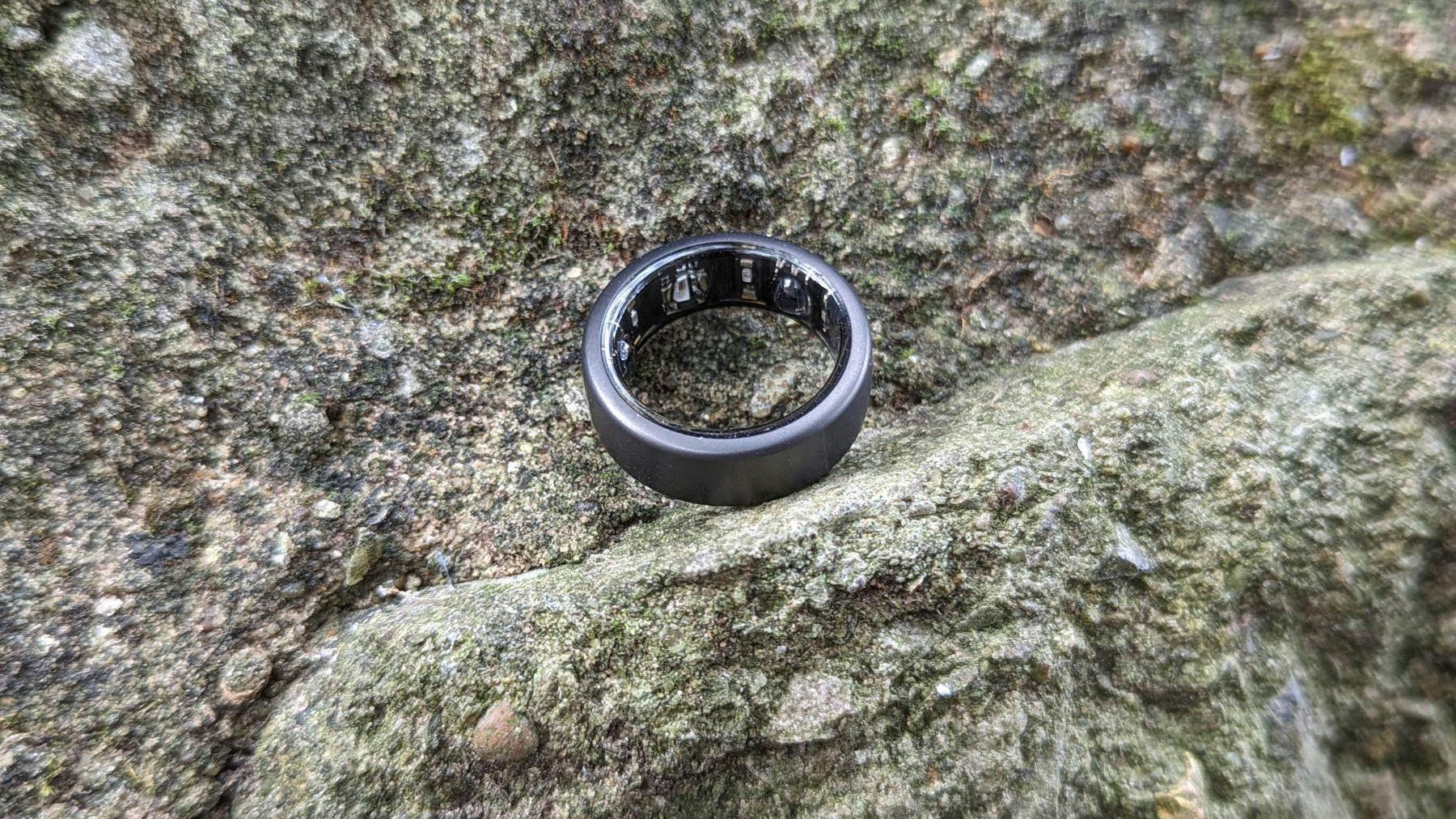
Design
This will partly come down to personal preference, but smart rings are stylish, small, and unobtrusive. They're often more comfortable to wear for long periods, especially when sleeping. It won't be immediately obvious to others that you're wearing a fitness tracking device, and it also means that if you have a favourite analogue watch or other wristwear that you like, you don't need to take it off to replace it with a fitness tracker or smartwatch.
No distractions
One more notable absentee from a smart ring is a screen. While for some, this may be a drawback, for others, having a device that can track your health and fitness without being tempted to look at it every five minutes is a big plus. And because of the lack of other smart features, such as notifications, you won't get ceaselessly interrupted by text, phone calls and app alerts.
Can't I buy a cheap smart ring for less than £50?
Yes, it's true that there are plenty of smart rings out there that make big claims about what they can do, at a bargain price. But the reality is that the smart ring industry is still in its infancy. And a lot of the companies that sell these devices are unproven and unknown.
The single biggest concern is what these companies might do with all that personal data you've given them. If they aren't well established, and don't have clear information about how your data is protected (such as a thorough privacy policy), then there is a risk that your health metrics and other personal information will be put at risk.
There are also concerns about the accuracy and reliability of these cheaper devices. If the device is dirt cheap, chances are the sensors and other technology in them won't be very good quality. That, in turn, raises questions about how accurate or reliable these rings are.
We'd expect the price of a decent smart ring to drop as more reputable companies enter the space. But we'd suggest treading carefully if you're thinking of buying a cheap smart ring.
Is a smart ring worth it?
Smart rings offer almost as much as you'd get from a more traditional fitness tracker in terms of the metrics they can monitor. And, while they are more comparable in price to a smartwatch than a fitness tracker, you're getting an incredibly compact wearable that won't bombard you with notifications. There's also a possibility that they are more accurate, especially for sleep tracking.
In terms of battery life, they will always be slightly limited by their size. But in general, a smart ring should last at least a few days between charges, while some can last almost a week. That's comparable to many fitness trackers and better than most smartwatches, which will often struggle to last longer than a day between charges.
There are a few compromises: the absence of a screen and notifications will put some people off. They also aren't as good as other devices at tracking certain types of exercise – we wouldn't recommend trying to do weight training while wearing a smart ring, for instance. But for anyone who is interested in monitoring their overall wellness, isn't bothered about apps, screens, or notifications, a smart ring is well worth considering.
Why should you trust us?
At What's The Best, our mission is to provide accurate and reliable reviews, ensuring our readers receive honest and transparent information about the best technology products available. Anything less would undermine our commitment to being a trusted source of unbiased product information.
Our dedicated in-house writing team comprises experts with extensive experience and a genuine passion for technology. Collectively, we have spent decades testing and writing about tech, leveraging our expertise in all our articles, advice pieces and reviews.
We maintain complete editorial independence and do not accept payment for product reviews. Our writers have full control over their content, ensuring that products are selected based solely on the needs of our readers. While we may earn commissions or other compensation from links on our website, this never affects our product choices. These links enable us to continue offering valuable consumer advice, without compromising the integrity of our reviews.
Steven Shaw is a Senior Tech Writer and Reviewer for What's the Best. Steven writes how-to guides, explainers, reviews and best-of listicles covering a wide range of topics. He has several years of experience writing about fitness tech, mobile phones, and gaming. He also knows how to search for the best deals and sales.
When Steven isn't writing, he's probably testing a new smartwatch or fitness tracker, putting it through its paces with a variety of strength training, HIIT, or yoga. He also loves putting on a podcast and going for a long walk.
Subscribe to the What's The BestNewsletter to keep up to date with more of the latest reviews and recommendations from the What's The Best team.
